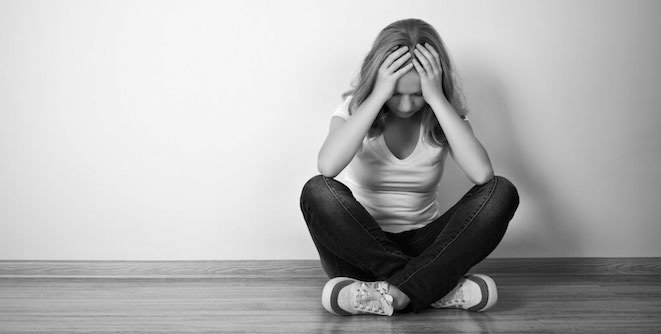
When people are first diagnosed with diabetes, many go through a roller coaster of emotions including fear, denial, anger, shock, and deep sadness. If you are a caregiver for someone living with diabetes, you too may also experience periods of emotional upheaval. This is normal.
Managing diabetes is a full-time job. Between watching what you eat, taking your medications, checking your blood sugars and staying active, it can feel very overwhelming. When you add depression to this, it may feel like it is too much to handle. Whether you have type 1 or type 2 diabetes and are feeling this way, know that help is available.
Is there a connection between diabetes and depression?
Chronic depression is more common among people with diabetes than in others. Depression related to diabetes is not just a short period of sadness after diagnosis, nor is it a ‘down’ mood that people can snap out of. It is a genuine medical condition that can and should be treated. There are both physical and emotional connections between the two. On an emotional level, many people living with diabetes feel stressed or frustrated, and even may suffer from ‘diabetes burnout‘. There are countless decisions to make, and the pressure to choose wisely often stems from the fear of potential complications. On a physical level, diabetes can wear you down, making you feel tired or perhaps losing interest in things you once enjoyed. Research shows that people with depression often pay less attention to diabetes management, including diet, exercise and checking blood glucose levels. Stress can also have a negative effect on blood glucose levels.
What are some signs of depression?
Depression can have different signs for different people. Some of these include:
- Persistent sadness or emptiness
- Loss of appetite or eating too much
- Feeling hopeless or helpless
- Sleeping problems – either too little or too much
- Difficulty concentrating or making decisions
- Feeling overwhelmed by daily tasks
- Withdrawing from friends and activities
- Thoughts of self-harm or suicide
Where can you get help?
If you have any of the above signs of depression, talk to a healthcare provider. These are real signs of a physical problem that can be managed, just like your diabetes. Your diabetes healthcare team will determine if this is depression, diabetes distress or something else. There are other healthcare professionals who may also be able to help such as a mental health professional or a certified diabetes educator.
You may require medication and/or cognitive behavioural therapy. There are several options – your doctor will determine the most appropriate choice for you.
It’s important to ‘look after you’ and to be kind to yourself. Everything does not need to be perfect. Look for things that help increase your mood such as connecting with a friend, going for a walk or listening to some great music. Know that you don’t need to do this on your own and you can depend on others, including finding a support group in your area.
Here are some great resources available to Canadians:
- Canadian Mental Health Association (CMHA): find local branches and services.
- Centre for Addiction and Mental Health (CAMH): mental health information (online courses and tutorials)
- Kids Help Phone (for youth): 1-800-668-6868 or text CONNECT to 686868
- Talk Suicide Canada: suicide crisis helpline Call or text 9-8-8 (available 24 hours a day)
Every day while managing diabetes is not going to be a good day. It’s okay to have bad days. Just know that those days don’t have to last forever. It is possible to feel beter and manage both your mental and physical health with the right help and support. Living with diabetes and depression isn’t easy. Don’t hesitate to reach out – help is closer than you think.


